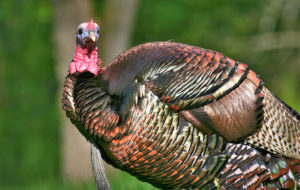Regulating Sports Betting After Murphy v. NCAA
After a 2018 Supreme Court case, the laboratories of democracy are busy experimenting with sports betting.
Regulating Vaccination in the United States
Recent outbreaks of vaccine-preventable diseases fuel debate about vaccine policy.
Resurrecting the Wild Turkey
Regulation, combined with other efforts, has successfully repopulated wild turkeys in the United States.
Regulating Police Body-Worn Cameras
Law enforcements’ expanding use of cameras raises questions over how to design programs governing them.
Empirical Evidence in the Administration of Family Law
Scholar proposes framework for the use of empirical evidence in child welfare policies.
Curbing the Spotted Lanternfly
Northeastern states are attempting to stop the spread of an invasive species that threatens crops.
Can Red and Purple States Go Green?
Scholars argue that state policymaking cannot effectively counteract federal environmental deregulation.
The Black Box of College Admissions
State legislators and the U.S. Education Department are scrutinizing college admissions practices.
The Future Looks Bright for the Right-to-Work Movement
The right-to-work principle protects employee freedom not to subsidize unwanted unions.
Regulating Non-Compete Agreements
Governments should place limits on non-compete agreements that apply to low-wage workers.
Strengthening Eco-Labeling Regulation
Scholar argues that many companies use unsubstantiated environmental claims to mislead consumers.
Lessons from State Implementation of Marijuana Legalization
States should learn from each other to confront the challenges of regulating marijuana.












